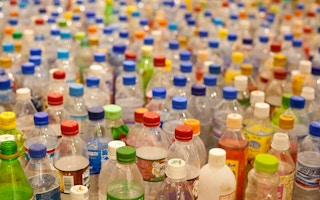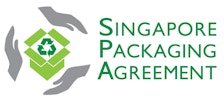When Japanese multinational imaging and electronics company Ricoh Asia Pacific delivers its machines to other firms in Singapore, it can collect the products’ packaging materials and recycle them. “When it comes to our toner supplies, however, customers can replace them on their own, and their packaging may be recycled or end up in the trash. This is out of our control now,” said Masayo Hada, deputy senior manager in Ricoh’s Regional Environmental Management Group.
Such uncertainties are one example of the challenges and complexities that companies face in taking back their packaging.
Singapore will roll out its mandatory packaging reporting framework in 2020 which will lay the foundation for an Extended Producer Responsibility (EPR) framework for managing packaging waste. Under these requirements, businesses will need to submit an annual report from 2021 with details on the types and amounts of packaging that they place on Singapore’s market in the preceding year, and their 3R—short for reduce, reuse, recycle—plans for packaging.
At the recent 18th Singapore Packaging Agreement (SPA) CEOs’ Luncheon held on 12 March 2019, Dr Amy Khor, Singapore’s Senior Minister of State for the Environment and Water Resources, said: “For a start, companies with an annual turnover of $10 million or less will be exempted, to minimise the impact on micro and small enterprises. We will review the exemption threshold in subsequent years, and it may be adjusted over time.”
She added that the government will take into consideration its plan to introduce an EPR framework for managing packaging waste – which would make companies take greater responsibility for the management of packaging waste from their products – when reviewing the threshold.
The types of packaging covered under the mandatory packaging reporting framework include primary packaging such as cans and bottles for beverages as well as service packaging such as plastic bags given out by supermarkets. Secondary packaging such as paperboard for holding products in a bundle pack and tertiary packaging such as shrink wrap, carton boxes and wooden pallets used to facilitate transportation of goods, are also covered under the framework.
Businesses that will be covered under the mandatory packaging reporting framework from 2020 include those with an annual turnover of over $10 million, spanning manufacturers, brand owners, importers and supermarkets that place packaging on the Singapore’s market. Mandatory reporting would make the obligated companies more aware of the packaging they use, and encourage them to reduce the amount of packaging and ultimately, waste generated. The data collected will aid in the study of the EPR framework for managing packaging waste in Singapore which is targeted to be in place by 2025.
In 2018, packaging materials made up one third of the 1.56 million tonnes of domestic waste disposed of in Singapore. The Singapore government has estimated that, at the current rates of waste disposal, the country’s sole landfill will run out of space by 2035. Packaging is therefore one of the key waste streams to focus on for more sustainable waste management, to help Singapore achieve its goal of becoming a zero-waste nation.
Carrots and complexities
Several companies welcomed the upcoming legislation but added that they might face challenges, including in collecting the necessary data. Others suggested that, with the annual data, the Singapore government should reward firms that adopt responsible packaging practices or improve their yearly figures, to incentivise others to follow suit.
Multinational consumer goods giant Unilever noted that the mandatory reporting requirement is timely. “Packaging is vital to our business and plays a critical role in making our products safe and enjoyable for our customers. Increasing resource scarcity, however, means that it is more urgent than ever to find solutions to reduce, reuse and recover post-consumer waste and move towards a more circular economy,” said a spokesperson.
The spokesperson added: “The mandatory reporting should ensure further action towards responsible packaging use. Incentives and certification could be provided where responsible use is being implemented, to encourage more sustainable production and consumption.”
Online grocer company RedMart said that it has been tracking its packaging waste disposal and recycling data since 2016, standing it in good stead to meet the reporting requirements if necessary, but it faces some challenges in reducing its use of packaging.
“Our customers typically order a combination of items, and our packing standards are based on each product category’s food safety risk. For instance, food and non-food items are never packed together, and meat, seafood, fresh fruits and vegetables are always packed in separate bags,” said its general counsel and head of government affairs Christopher Chan.
Currently, orders are packed in plastic bags and then, depending on the products’ optimum storage temperature, placed in reusable delivery totes or recyclable carton boxes that could be brought back to the firm after each delivery. “We’re studying alternatives for our packaging, but we’re mindful that there must always be a very clear control on cleanliness, and we cannot compromise on food safety and compliance with religious standards, such as with Halal foods,” Chan added.
Tetra Pak, a multinational food packaging and processing business, welcomed the possibility of an EPR framework for managing packaging waste in Singapore. “We believe that manufacturers and brand owners have an important role in managing post-consumer waste. Producers of packaged goods and packaging manufacturers should ensure that recycling solutions are in place for the packaging they place on the market,” said a spokesperson.
She added that the firm has helped to develop and implement EPR schemes for packaging waste in other countries, and, in its experience, such legislation needs to meet several criteria to be successful: “It should apply to all consumer packaging types without exception, to create economies of scale and a level playing field among producers and packaging manufacturers. The costs assigned to producers should be directly proportional to what they can influence and control.”
She continued: “The legislation should be based on solutions tested with pilot programmes, and recycling should be defined as a shared responsibility among consumers, the government and the private sector.”
Zero-waste nation
Ahead of the reporting framework and potential EPR policy, many firms have started to take additional steps to reduce their packaging use and waste. RedMart has started to use reusable cargo straps and canvas covers instead of plastic shrink wrap, where possible, to secure goods stored on wooden pallets in its warehouse. It is also looking into modifying its reusable delivery totes to include a built-in sealing mechanism so that plastic ties are no longer needed.
“We are also currently exploring the use of reusable bags that will allow us to considerably reduce or eliminate the use of plastic bags in our business. We are looking into options that are robust and can be easily cleaned. Understandably, we will have to actively work with our customers to make the returns flow work,” said Chan.
Ricoh won a Worldstar Award from the World Packaging Organisation in 2018 for its new generation of eco-friendly, returnable packaging boxes for its copier products. The boxes are designed to be more easily stackable to facilitate their return, and use less materials. Ricoh estimates that it will save 91.2 tonnes of materials annually with the new boxes.
Unilever, for its part, has pledged that all of its plastic packaging will be reusable, recyclable or compostable by 2025. Its Seventh Generation laundry detergent brand also launched a product housed in a plastic bottle with 100 per cent recycled content, in Singapore in 2018.
Australian Fruit Juice, which manufactures and supplies fruit juices, purees, concentrates and cordials to restaurants, supermarkets, hotels and other customers in Singapore, won a Top Achievement Award at the 2018 SPA Awards. It had reduced the weight of its 2-litre polypropylene bottle from 80 grams to 72 grams, reducing its plastic packaging use by 6.38 tonnes each year.
It also switched from single-use carton boxes to reusable plastic ones for the delivery of some of its products, saving 17.76 tonnes of cardboard boxes annually, and started recycling its used metal drums, wooden pallets and crates, which were previously disposed of, to give 69.9 tonnes of its packaging waste each year a new life.
The Tetra Pak spokesman said that the company has always striven to reduce its environmental impact. By optimising its work flow and investing in new equipment that allowed it to recover and reuse packaging waste from its production line, for example, it cut the packaging waste at its Jurong manufacturing plant in Singapore by 15,000 tonnes between 2007 and 2017.
An NEA spokesman said that the agency will continue to engage industry stakeholders on the upcoming mandatory packaging reporting framework, including through more briefing sessions to keep the industry informed of the changes ahead.
Speaking at the 2019 Committee of Supply Debate, Minister for the Environment and Water Resources, Masagos Zulkifli, said: “Singapore designated 2019 as the Year Towards Zero Waste. We want to break away from the linear economy, where we take, make, use and toss without a second thought, because this is not sustainable.”
The National Environment Agency is engaging organisations on the mandatory packaging reporting framework. If your company would like to be kept updated on the industry engagement sessions on the new mandatory requirements, please contact Singapore_packaging_agreement@nea.gov.sg





















